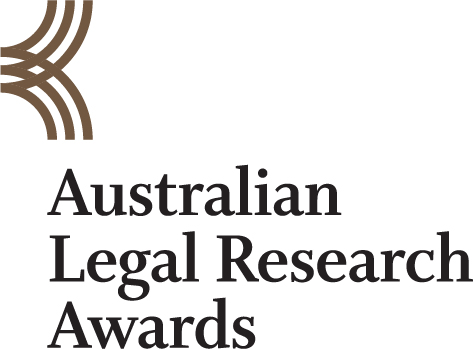The Council of Australian Law Deans (CALD) is the peak body representing Australia’s 39 university law schools, and the CALD Executive Committee is comprised of eight Australian law deans. This statement in response to contemporary humanitarian crises has been drafted and endorsed by the members of the CALD Executive Committee as well as the CALD members listed below.
A public trust is placed upon the shoulders of Australian law schools to educate and inspire the next generation of legal minds. Legal scholars and law students are called upon to wrestle with ideals that are ‘fundamental’ to the legitimacy of legal orders including foremost upholding the rule of law and respect for human rights. We teach law students that the definitions and scope of these ideals are never beyond contestation, subject to qualifications, limitations, and reservations. While contestation is to be expected, disputes should be resolved peacefully where possible or fought respectfully with legal rules in open forums and tribunals, rather than with lethal weapons on battlefields.
Upholding the rule of law and respect for human rights are critical to conferring legitimacy on our systems of governance, as well as holding out the prospect that those who abuse power and act unlawfully and without justification may be held ultimately accountable. Fidelity to these ideals serves to prevent abuses of power within both domestic and international legal orders. In recent months, the humanitarian crisis in Europe has witnessed these twin commitments to legality and human rights being placed under grave threat.
The law schools of Australia form part of the global and local communities they serve. The signatories to this statement first express their deep concern for the human impacts on civilian populations caused by the armed conflict continuing to rage in Ukraine. International laws have been invoked, challenged and infringed, and untold human rights abused. Casting aside respect for international law and legal institutions for resolving disputes – whether bearing on contentious issues of territorial sovereignty and self-determination – is a perilous route that subverts the rule of law and human rights domestically and internationally.
Humanitarian crises are not solely caused by armed conflict. Over recent weeks, Australia has been adversely affected by extreme weather events, which have wreaked destruction and disruption on countless lives, property and communities. Following catastrophic bushfires in 2019-20, the current floods demand immediate humanitarian responses, and also underscore the key role of new national laws enacted for the purpose of more effectively coordinating natural disaster responses at the local, state and national level.
The signatories to this statement join those leading scholars and other concerned members of law schools calling for respect of international norms and institutions, and renewed efforts
by all nations to cease violent conflict and to avert, or as a minimum, mitigate the effects of humanitarian crises. To that end, the signatories to this statement express the following:
- • We affirm our solidarity and deep concern for those whose lives have been disrupted and communities displaced by the turmoil now engulfing parts of Eastern and Central Europe.
- • Law and legal institutions at all levels have a vital role in averting and responding to humanitarian crises, as well as creating conditions for effective reconstruction.
- • Averting humanitarian crises, whether related to rising geopolitical global rivalries or the climate emergency, requires co-ordinated action at the local, national and global levels.
- • Legal scholars play an important role in assisting the community to better understand the legal and constitutional implications of these crises, mindful of proper bounds of their professional expertise, and rights and duties associated with academic freedom on campus.
The signatories to this statement recognise that the legal academic community, in speaking up against injustice and abuses of power whether at the local or international level, will not always be in a popular position among political or civil society circles. To be ‘frank and fearless’ in defence of legal ideas and human rights sometimes comes at a personal and professional cost.
The signatories to this statement join those leading scholars and concerned members of law schools calling for respect of international norms and institutions, and renewed efforts by all nations to cease violent conflict and avert humanitarian catastrophe.
The CALD Executive is committed to advancing and promoting open and respectful debate and discussion on matters of legal concern both local and global.
Signatories:
CALD Executive Committee:
Professor Tania Sourdin (CALD Co-Chair), The University of Newcastle
Professor Nick James (CALD Co-Chair), Bond University
Professor Natalie Skead (Deputy Chair), The University of Western Australia
Professor Simon Bronitt (CALD Treasurer), The University of Sydney
Professor Tania Leiman (Vice-Chair Legal Education), Flinders University
Professor Sally Wheeler OBE (Vice-Chair Legal Research), Australian National University
Professor Pip Nicholson (Vice-Chair International Matters), The University of Melbourne
Professor Jenni Lightowlers (Vice-Chair Standards, Accreditation and the Legal Profession), Deakin University
Australian Law Deans:
Professor Trish Mundy, Dean of Law, University of Wollongong
Professor Michael Quinlan, National Head of School, Law and Business, University of Notre Dame Australia
Professor Fiona Kelly, Dean, School of Law, La Trobe University
Professor Patrick Keyzer, Dean of Law, Australian Catholic University
Assoc. Professor Alan Berman, Dean of Law, Charles Darwin University
Professor Michael A. Adams FAAL, Head of School, UNE Law School, University of New England
Professor Reid Mortensen, Head of School, School of Law and Justice, University of Southern Queensland
Professor Anita Stuhmcke, Dean of Law, University of Technology Sydney
Professor Therese Wilson, Dean of Law, Griffith Law School, Griffith University
Associate Professor Joshua Aston, Associate Dean of Law, School of Business and Law, Edith Cowan University
Professor Andrew Lynch, Dean of Law and Justice, University of NSW Sydney
Professor Jay Sanderson, Head of School, School of Law and Society, University of the Sunshine Coast
Professor Vicki Waye, Dean of Law, University of South Australia
Professor Michael Stuckey, Dean of Law, University of Tasmania
Ms Sonia Walker, Head of Law and Criminology, Murdoch University
Professor Tania Leiman, Dean of Law, Flinders University
Professor Lise Barry, Dean of Law, Macquarie University
Associate Professor Alison Gerard, Head, Canberra Law School, University of Canberra
Professor Anna Cody, Dean of Law, Western Sydney University
Professor Bryan Horrigan, Dean of Law, Monash University
Professor Robert Cunningham, Dean of Law, Curtin University
Dr Jamie Fellow, Head of Law, James Cook University
Professor Simon Bronitt, Head and Dean, Sydney Law School, University of Sydney







Recent Comments